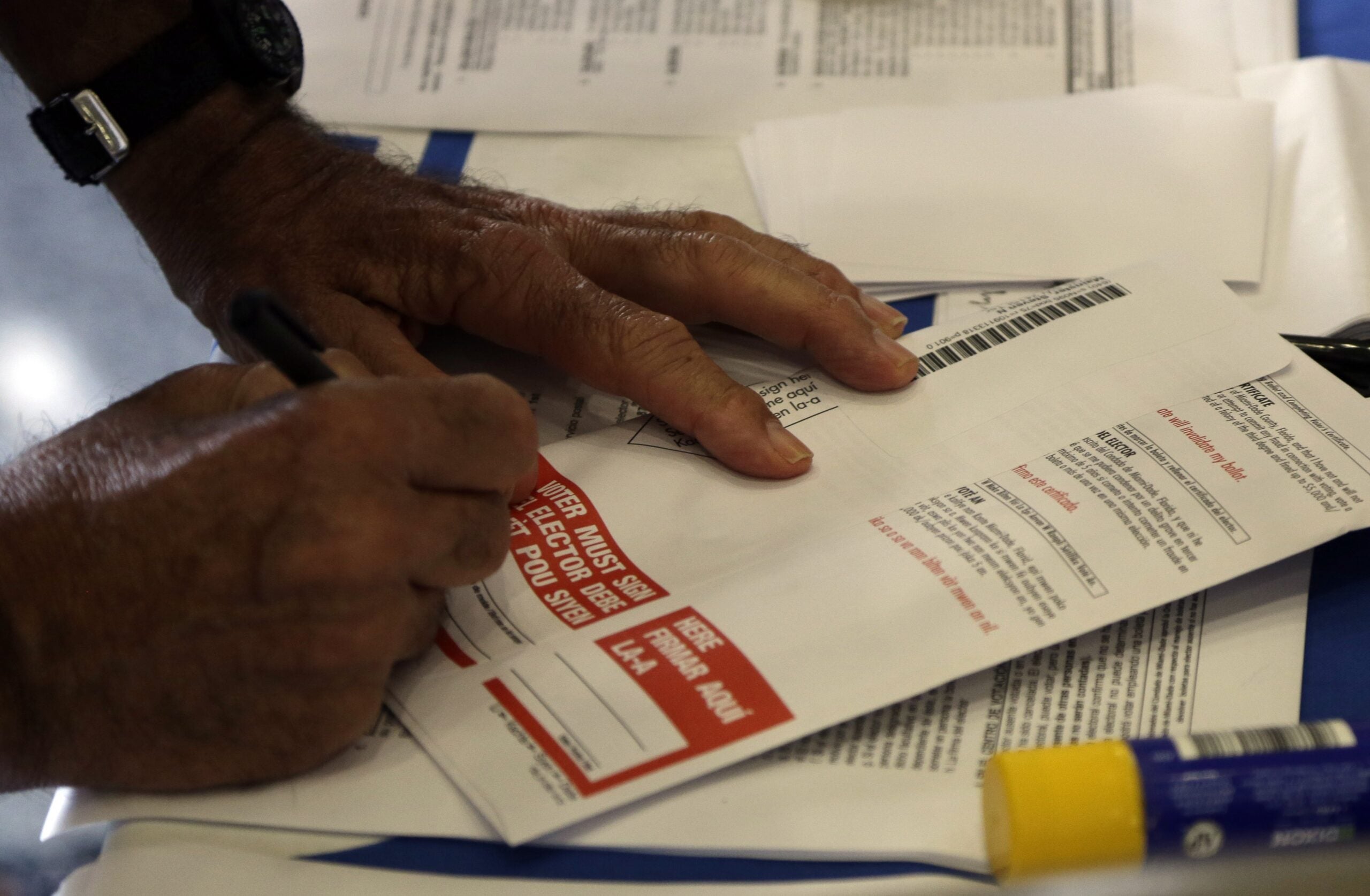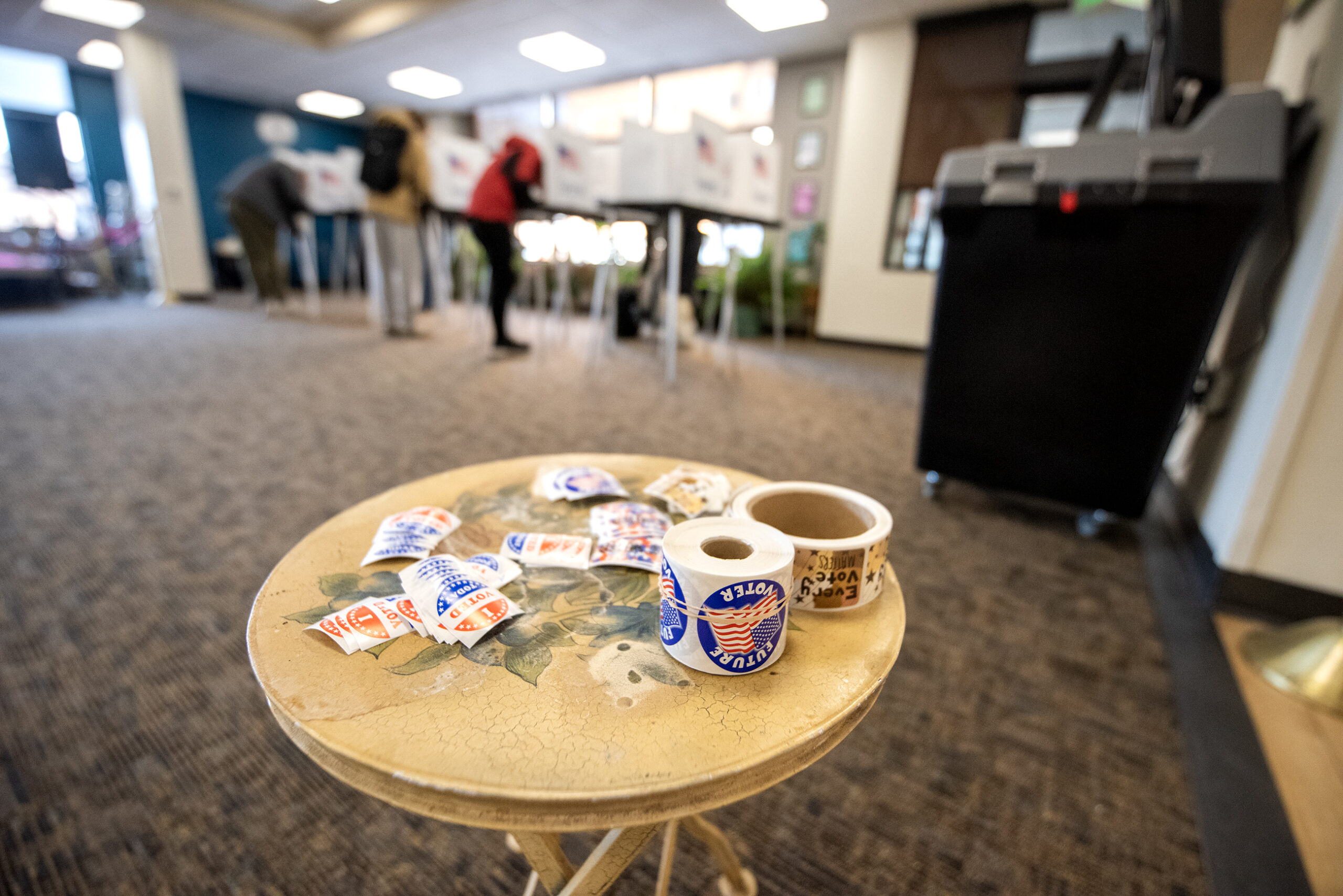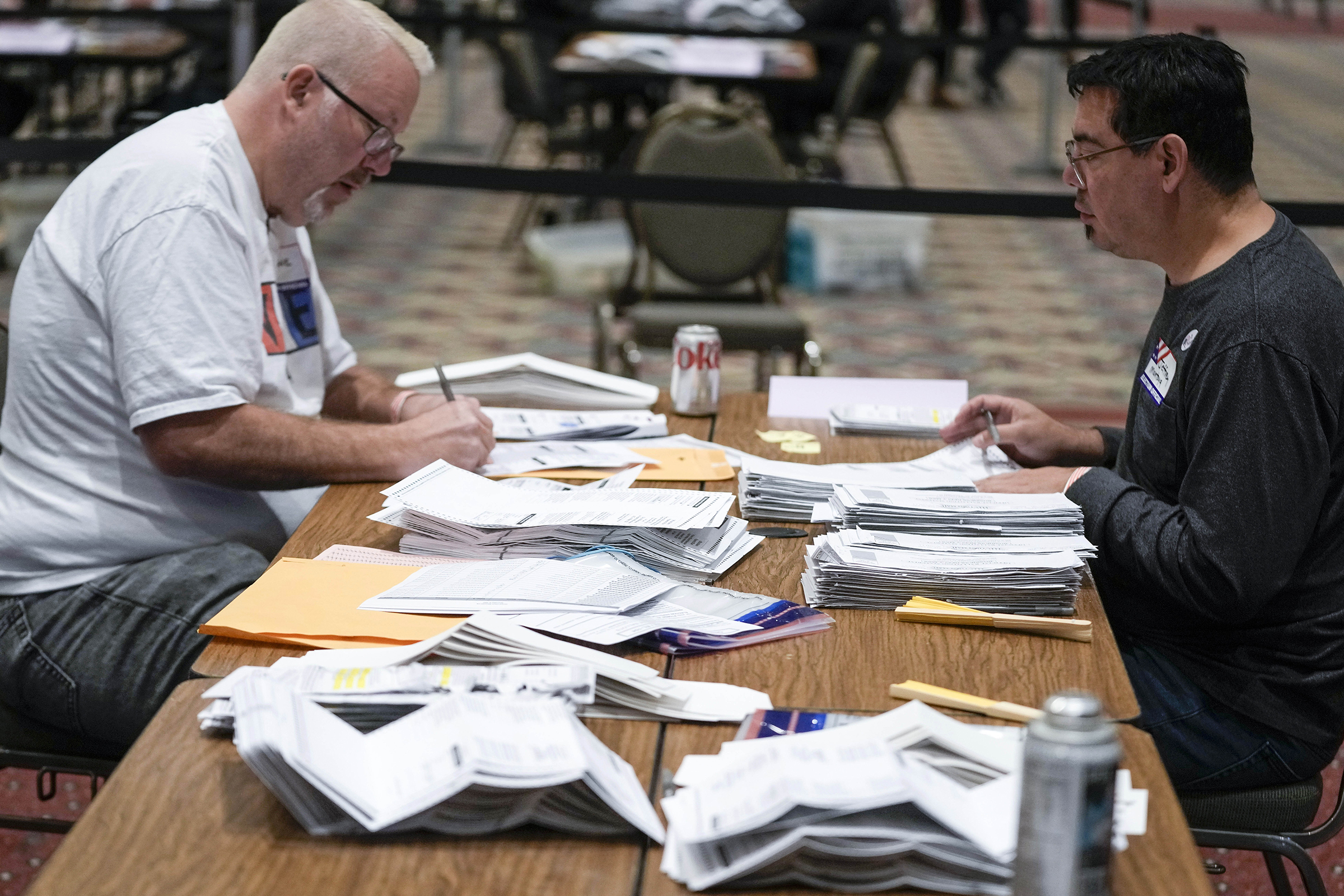As a legal battle over witness addresses on absentee ballots heads towards the Wisconsin Supreme Court, Republican lawmakers say they’re hoping to settle the debate over the definition of “address” before the court does.
A bill authored by Wisconsin Reps. Donna Rozar, R-Marshfield; Scott Krug, R-Nekoosa; and Sen. Cory Tomczyk, R-Mosinee, would specify that a witness’s address must contain the person’s name, house number, street name, municipality, state and ZIP code.
It would also bar clerks from filling in missing address information regardless if they can identify where that person lives. If a clerk — or anyone other than the voter — corrects the address, they could face fines of up to $500 and up to 30 days in jail, under the legislation.
Current law states that a witness must print their name and address on the absentee ballot envelope, known as a witness certificate, but doesn’t spell out what constitutes an address.
Krug said the bill is a response to lawsuits on absentee witness signatures working their way through state courts. The most recent ruling came from Dane County Circuit Court Judge Ryan Nilsestuen, who ordered the Wisconsin Elections Commission to tell local clerks that absentee ballots with witness addresses missing things like a ZIP code or municipality must be counted if they can determine where a witness lives.
“This is where the definitions and guidance and ideas should come from, is the Legislature passing them and the governor signing them into law, so the courts don’t have to guess,” Krug said.
The Dane County lawsuit was filed by the League of Women Voters and youth organizing group Rise, Inc. They argued state law is vague on what witness address information needs to be included on ballots and clerks around Wisconsin are using different standards.
A separate federal lawsuit filed in October by a national Democratic law firm argues the state law requiring witness signatures on absentee ballot envelopes violates the federal Voting Rights Act. That case is ongoing.
News with a little more humanity
WPR’s “Wisconsin Today” newsletter keeps you connected to the state you love without feeling overwhelmed. No paywall. No agenda. No corporate filter.
Krug, who chairs the Wisconsin Assembly Committee on Campaigns and Elections, scheduled a public hearing on the bill Wednesday. He said he doesn’t “have any illusions” that Democratic Gov. Tony Evers is going to sign the bill into law “when the courts are already indicating they’re going to take care of it.”
A spokesperson for Gov. Evers didn’t say what action Evers might take on the bill, but said the governor “believes we should be making it easier, not harder, for eligible Wisconsinites to cast their ballot.”
Krug said he’s been talking with Democrats on the committee about how they may want to change the bill. He’s hopeful there can be compromise.
“This isn’t rocket science. This is an address, right?” Krug said. “I mean, we’re talking about something we all put on an envelope.”
An attorney for the Republican-controlled Legislature asked the Dane County Court to delay his order while the case is appealed to a higher court. On Friday, Nilsestuen denied the request. The liberal firm Law Forward, who represented the League of Women Voters in the case, called the denial a “voting rights victory” and accused the Legislature of trying to impede fair administration of elections.
Until an appeals court or the Wisconsin Supreme Court decides the case, the Dane County order stands in conflict with a Sept. 2022 ruling out of Waukesha County barring clerks from filling in missing witness address information on absentee ballot envelopes. Circuit Court Michael Aprahamian sided with Republicans in that case, ruling that state law does not authorize election officials to “correct, modify, alter or add to an absentee ballot certification.”
Editor’s note: The story was updated to reflect that clerks can count ballots with a partial witness address.
Wisconsin Public Radio, © Copyright 2026, Board of Regents of the University of Wisconsin System and Wisconsin Educational Communications Board.







